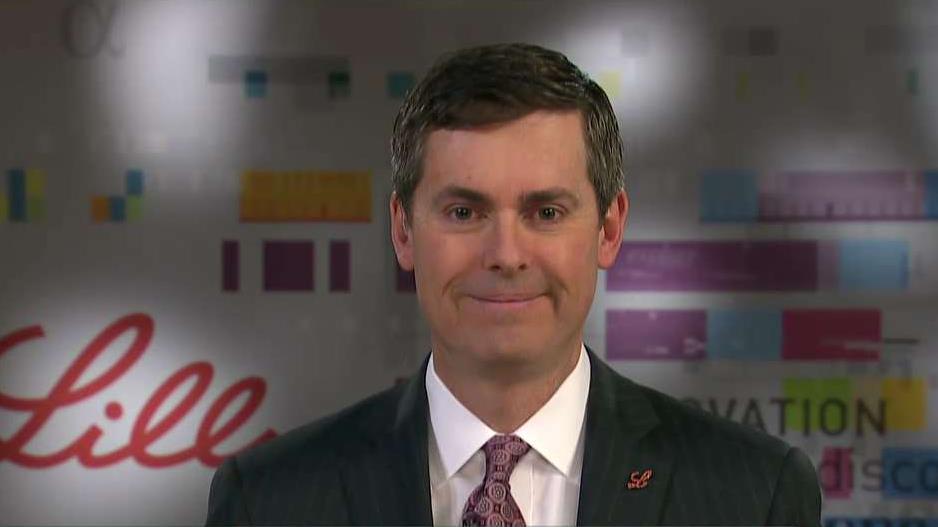States pursue aggressive drug pricing remedies; PBM, big pharma in crosshairs
States are taking aggressive actions to rein in high prescription treatment costs from pharmaceutical firms and curb potentially illicit behavior from middlemen price negotiators, as Congress and the White House pursue their own steps to potentially upend the health care industry.
After years of pharmacy benefit managers (PBMs) and drugmakers trying to pass the blame between each other for the cost of prescription treatments, perhaps for the first time in the modern era lawmakers are eager to take a holistic view of what is driving the high prices.
And also for the first time, both sectors appear unable to use their influence to block adverse policy proposals or potentially incriminating investigations.
In Maryland, Republican Gov. Larry Hogan is weighing whether to sign legislation passed earlier this month to create an independent panel to review both expensive medications and those that undergo significant price hikes, a measure vehemently opposed by the industry that experts predict will be replicated other states.
The Maryland move comes after a California law went into effect in January that requires drugmakers to give 60 days’ notice before significantly raising prices. And as in prior years, statehouses around the country are weighing a slew of proposals that address everything from the transparency around cost-setting to allowing individuals to import cheaper drugs from places like Canada.
Meanwhile, the Ohio Attorney General Dave Yost is suing top pharmacy benefit manager (PBM) Optum Rx, owned by UnitedHealth, alleging that it committed fraud in the contract with the state’s workers’ compensation agency.
His office is seeking $16 million in overcharges from the Irvine, California-based company and recently proposed a number of policy ideas intended to address how the PBM industry contracts with Ohio.
An Optum Rx spokesperson did not respond to request for comment.
In Pennsylvania last year, auditor general Eugene DePasquale suggested, among other proposals, that the state contract directly with PBMs to manage prescription drug benefits, instead of working through managed care organizations. And Connecticut, Kentucky and others are all seeking more transparency from the industry and pursuing investigations into their contracts with state agencies.
“Customers like state Medicaid agencies have eyes wide open about these practices and they are going to start asking more questions,” said Lindsay Bealor Greenleaf, director at health care consulting firm ADVI Health.
Because pharmacy benefit managers often contract with health care managers who work with state agencies, the actual details of contracts can be opaque. But recent efforts from Ohio, Pennsylvania and others are shedding light on the secretive industry that is facing escalating scrutiny in Washington D.C.
| Ticker | Security | Last | Change | Change % |
|---|---|---|---|---|
| UNH | UNITEDHEALTH GROUP INC. | 276.59 | +8.15 | +3.04% |
| CI | THE CIGNA GROUP | 291.90 | +7.45 | +2.62% |
| CVS | CVS HEALTH CORP. | 78.35 | +2.02 | +2.65% |
Ohio Gov. Mike DeWine, a Republican, previously solicited an outside attorney to investigate the role of Optum, CVS Health and Express Scripts, owned by health insurer Cigna, in Ohio’s Medicaid program and pension funds.
A state audit recently that found CVS and OptumRx retained $224 million through so-called “spread pricing,” or a practice in the industry in which the PBM keeps the difference between what an insurer pays and what is reimbursed to pharmacies.
Some of that cost is used to cover administrative costs at the benefits manager, the sector argues. A clearer picture of the method could be coming after Republican Senate Finance Chairman Chuck Grassley of Ohio and Sen. Ron Wyden of Oregon, the panel’s top Democrat, asked a top federal health auditor to probe the practice in the U.S. Medicaid program.
“State Medicaid agencies are waking up and realizing that PBMs are profiting to a great extent off of spread pricing and they didn’t even know it,” Greenleaf said.
CLICK HERE TO GET THE FOX BUSINESS APP
Analysts say the industry is unlikely to take a financial hit in the near-term, as Congress, the Trump administration and states continue work on the issue of drug pricing.
The White House, for example, is finalizing a rule to end the drug rebate program that pours billions of dollars annually into the coffers of CVS Health, UnitedHealth and others. The administration previously said it would allow insurers to ease into the new requirements.




















